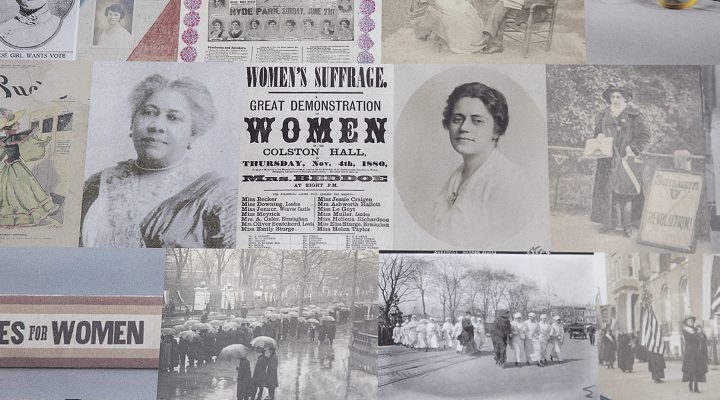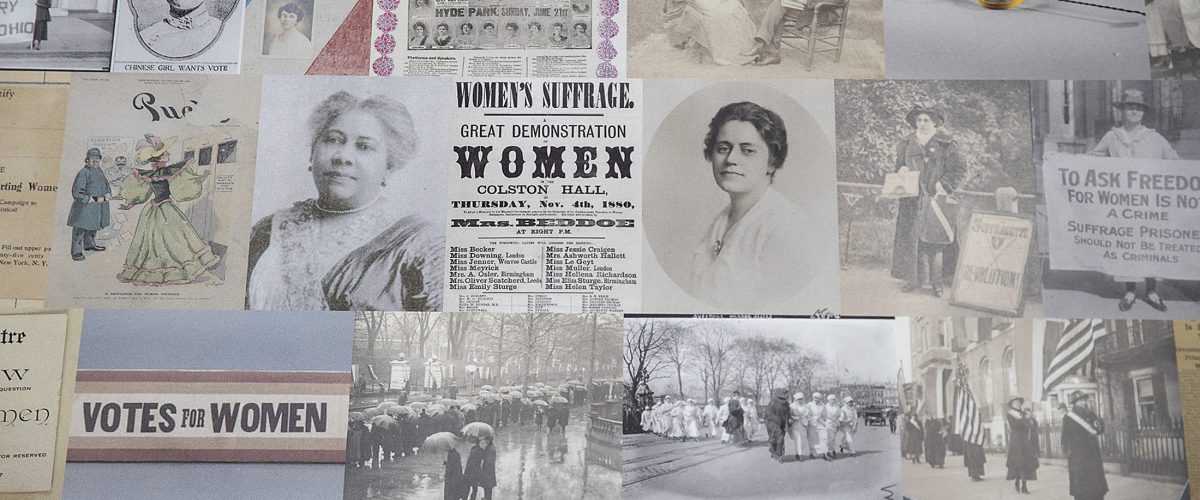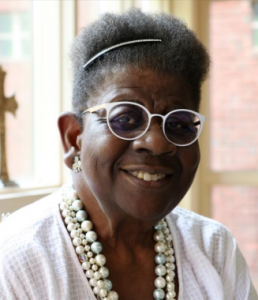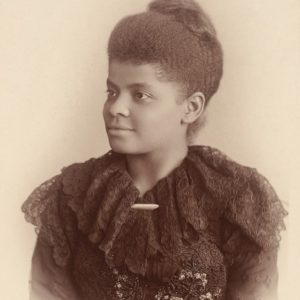Many white women made it clear on Nov. 5 — just as they did in 2016 — that their true allegiance is to their men and the white supremacy paradigm upon which America was built and continues to live and breathe each day.
White women have spent many decades declaring to African American and other women of color that we are sisters bound together by male dominance and oppression. But this declaration rings hollow when every time there is an opportunity to stand with African American women in particular, they cannot be found.
Again, this election was a stark reminder of this historical dynamic.
When enslaved African American women were being brutalized through rape and other forms of violence, the white women in their lives were silent. The silence continued throughout the long journey to freedom and continues to this present moment.
The silence was present during the suffrage movement when African American women were not allowed to participate in the women’s marches because some of the white women, especially those from the South, would have been offended. Many of us never will cease to be thankful for our warrior woman sister, Ida B. Wells, who joined the 1913 march in Washington, D.C., from the sidelines where she stood when the procession of white women reached her. Susan B. Anthony had told her not to join, and she did it anyway.
This is one very vivid example of white women choosing race and white supremacy over the well-being of African American women. This phenomenon has been illustrated in our election patterns for years, and it happened again on Election Day 2024. White women could have made the difference in the outcome.
It more than likely was not their conservatism that gave them pause as much as it was that Vice President Kamala Harris is an African American female, and they could not choose her over supporting their white skin and its privilege and the men who counted on them to make sure the white supremacy paradigm remains intact.
It was so wearying to hear the white women who continued to lament they did not know what the vice president’s policies would be when she was quite clear about what she hoped to do, yet they voted for a person whose policies are basically nonexistent.
Also, there were far too many comments about not knowing who the vice president really was as a person. This could not be more unfounded, when there were so many attempts to introduce her to the American people. Furthermore, one can find more information in 15 minutes on the internet about anyone with a public life than can be digested in hours.
These comments seem to be deeply grounded in the fear that having an African American in the White House again would further erode the white supremacy energy system, thus endangering the way of life that has become comfortable and expected by many white women. The role of being connected to the ones who have the power, white men, is not one to be vacated easily.
“Many white women are quite happy with the power imbalances and the systematic way of marginalizing people of color.”
Many white women are quite happy with the power imbalances and the systematic way of marginalizing people of color and any other types of difference that offer a threat to the white men who are clearly beginning to realize that their days of dominance are coming to an end, and that they will not be able to live in absolute peace as dominators in the future because too many have seen the light of freedom and justice and will not be going back to the days when there was less freedom.
While there were many white women who did vote for the vice president and who have stood steadfastly in the struggle for freedom for everyone, far too many have not been engaged in that pursuit, and it is time for new conversations that bring this dynamic to the racial healing table. The cry of gender-based sisterhood is no longer a claim with the power to mask the racism that is sitting next to that claim and helping to sabotage the struggle for full and complete liberation for African American women and all other people of color in our land.
As we think about the racial dynamics in our country and the current state of hatred that is being spread in regard to our Latinx siblings, it is clear we have many miles to go before we can claim racial healing victory in this land. Of course, the racial situation is far better than it was in decades past, but that fact does not justify where we are today and the amount of racial division we are enduring in this present moment.
It appears one of the major ways to navigate forward is for all of us, especially white women, to seek to find a way to be better truth-tellers. The light of the truth needs to shine more brightly in our neighborhoods, in our conversations and in our basic interactions with one another. The truth-telling is not going to be easy, but it is essential if we hope to transform the energy that continues to fuel the fires of division, the distrust and in many cases the outright hatred waiting anxiously to become stronger.
Communities of faith are the major groups that need to begin seeking such truth-telling. These communities claim to have a way to see that is not grounded in fear and a desire to be superior, although there are times when it is difficult to discern how deep that claim goes. Nonetheless, the expectation and hope is that the commitment to their faith will prevail.
The notion that there is a call to something higher than power, money, white skin or all of the narratives that have been created to justify the ways we have behaved in the United States since it began needs to be reaffirmed in this present moment. Women are more likely to be the leaders in taking the first necessary steps to move us in a new and better direction, and white women who have not awakened to their complicity in this matter need to do so.
All of us need to seek the light more diligently and seek to be a half shade braver each day. The country and the planet need us to act.
Catherine Meeks was given the President Joseph R. Biden Lifetime Achievement and Service Award in August 2022; was listed by Georgia Trend Magazine as one of the 500 women to watch in Georgia in 2022; retired as the Clara Carter Acree Distinguished Professor of Socio-Cultural Studies at Mercer University; is an author, community and wellness activist and mid\wife to the soul. She previously served as founding executive director of Absalom Jones Episcopal Center for Racial Healing and currently serves as founder and executive director of the Turquoise and Lavender Institute for Transformation and Healing. She lives in Atlanta.
Related articles:
Progressive white Christian men, it’s time to get some skin in the game | Opinion by Susan Shaw
‘Remember the ladies’ | Opinion by Susan Shaw
This election is about whether American women are more than breeders | Opinion by Mara Richards Bim




